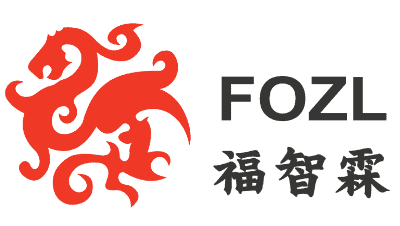Property Tax
- Buyer’s Stamp Duty(BSD)
- Additional Buyer’s Stamp Duty (ABSD)
- Mortgage Duty
Buyer’s Stamp Duty (BSD)
You are required to pay BSD for the documents executed for the sale and purchase of the property in Singapore. The BSD will be calculated based on the purchase price or the market value of the property, whichever is higher, as stated in the document to be stamped.
If there is a benefit associated with the acquisition, and the benefit is stated in the document to be stamped and is a cash discount (i.e. cash, non-post dated cashier’s order, or cheque) to be given to the purchaser upon execution of the document (and not later), the amount of discount may be deducted from the purchase price to determine the consideration for stamp duty purpose. This is provided that the net price is still reflective of market value.
If the document to be stamped provides for the granting of a non-cash benefit (e.g. furniture vouchers, rental guarantees, cars, or lucky draws), the value of the benefit cannot be deducted from the purchase price for stamp duty purposes.
If the cash or non-cash benefit is not specified in the document to be stamped, the value of the benefit cannot be deducted from the purchase price for stamp duty purposes either.
The first instrument executed in connection with the sale will be subject to ad valorem duty (i.e. full customs duty). Subsequent documents relating to the same sale transaction will not be liable for stamp duty.
BSD is computed based on the purchase price or market value of the property, whichever is higher.
Prior to 20 February 2018, the BSD rate was as high as 3%. From 20 February 2018 onwards, the BSD rate differs for residential and non-residential properties. The BSD rate for acquisition of residential properties on or after 20 Feb 2018 is up to 4%.
| Starting February 20, 2018 | ||
| Purchase price or market value of the property | Stamp duty rates for residential buyers | Stamp duty rates for non-residential buyers |
| First $180,000 | 1% | 1% |
| Subsequent $180,000 | 2% | 2% |
| Subsequent $640,000 | 3% | 3% |
| Remaining | 4% | |
| BSD will be rounded down to the nearest dollar, but with a minimum tax of S$1. | ||
Example: condominium unit purchased on March 30, 2018 for $2,500,550, reflecting the market value
| Market value of the property | Buyer’s stamp duty rates | Calculate |
| First $180,000 | 1% | =$1800(1% x $180,000) |
| Subsequent $180,000 | 2% | =$3600(2% x $180,000) |
| Subsequent $640,000 | 3% | =$19,200(3% x $640,000) |
| Subsequent$1,500,550 | 4% | =$60,022(4% x $1,500,550) |
| Buyer Stamp Duty | =$84,622 | |
Additional Buyer’s Stamp Duty (ABSD)
A liable buyer is required to pay ABSD on top of the existing buyer’s stamp duty (BSD). ABSD and BSD are computed on the purchase price as stated in the dutiable document or the market value of the property (whichever is the higher amount).
The ABSD rates have been revised as of 6 July 2018. You may refer to the accompanying ABSD Fact Sheet for more detailed information on the adjusted ABSD rates and ABSD relief for the purchase of residential property during the transition period.
| Profile of Buyer | Additional Buyer’s Stamp Duty rates After 6 July 2018 |
| First residential property for Singaporean citizens | Not applicable |
| Second residential property for Singapore citizens | 12% |
| Third and subsequent residential property for Singapore citizens | 15% |
| First residential property for Singapore Permanent Residents | 5% |
| Second and subsequent residential property for Singapore permanent residents | 15% |
| Purchase of residence by foreigners | 20% |
| Company buying any residential property | 25% |
| 15% plus additional 5% for housing developer |
Home loan rules
Below is a summary of the new home rules.
| Rule | Notes |
| Loan period | · 30 Years(HDB)
· 35 Years(Non-HDB) |
| Loan-to-Value (LTV) | Depending on the term of the loan, the age of the borrower, the borrower’s existing loans, and whether or not the borrower is a shell company, there is a maximum amount an individual can borrow for a home loan. |
| Mortgage servicing ratio(MSR) | Up to 30% of the borrower’s gross monthly income should be used to repay all their property loans, including the loans being applied for.
Applicable to HDB and EC purchases only. |
| Total debt service coverage ratio(TDSR) | No more than 60% of the borrower’s gross monthly income may be used to repay his debts, including the loan applied for. |
| First Mortgage | Second Mortgage | Third Mortgage and Above | |
| Personal Loan | |||
| Ratio Limit | 75%; If the loan term is more than 30 years* or more than 65 years old: 55% | 45%; If the loan term is more than 30 years* or more than 65 years old: 25% | 35%; If the loan term is more than 30 years* or more than 65 years old: 15% |
| Minimum Cash Down Payment | 5%; If the loan term is more than 30 years* or more than 65 years old: 10% | 25% | |
| Non Personal Loan | |||
| Ratio Limit | 15% | ||
| *25 years if purchased as a government HDB flat. | |||


